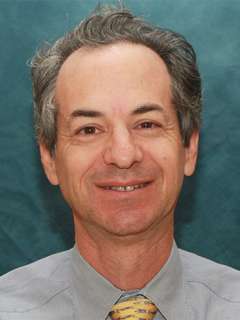
Gerald Lipshutz, MD, DDS
Specialty
Institutional Affiliation
Languages
Education
Fellowship
Internship
Degrees
Residency
Board Certification
Contact Information
Phone
Clinical Interests
Scientific Interests
Achieving persistent transgene expression at therapeutic levels is a prerequisite for effective gene therapy for inherited disorders of intracellular or secreted proteins. In adult animals, delivery and expression of genes has resulted in immune responses to the gene product and to vector-associated proteins that limit or abrogate expression. Dr. Gerald Lipshutz's investigations aim to study the immune response to proteins expressed prenatally and on into adulthood, after in utero delivery of viral vectors expressing foreign transgenes. Re-administration of viral vectors during adulthood, after prenatal vector delivery, would allow for augmentation of expression postnatally with the goal of achieving therapeutic levels of gene expression. Understanding the mechanism of this immune unresponsiveness may also be important in the treatment of certain malignancies such as melanoma.
Highlighted Publications
Lipshutz GS, Hiatt J, Ghobrial RM, Farmer DG, Martinez MM, Yersiz H, Gornbein J, Busuttil RW. Outcome of liver transplantation in septuagenarians: a single-center experience. Arch Surg. 2007 Aug;142(8):775-81; discussion 781-4.
Lipshutz GS, Baxter-Lowe LA, Nguyen T, Jones KD, Ascher NL, Feng S. Death from donor-transmitted malignancy despite emergency liver retransplantation. Liver Transpl. 2003 Oct;9(10):1102-7.
Lipshutz GS, Titre D, Brindle M, Bisconte AR, Contag CH, Gaensler KM. Comparison of gene expression after intraperitoneal delivery of AAV2 or AAV5 in utero. Mol Ther. 2003 Jul;8(1):90-8.
Lipshutz GS, Brennan TV, Warren RS. Thorotrast-induced liver neoplasia: a collective review. J Am Coll Surg. 2002 Nov;195(5):713-8. Review.
In the News


